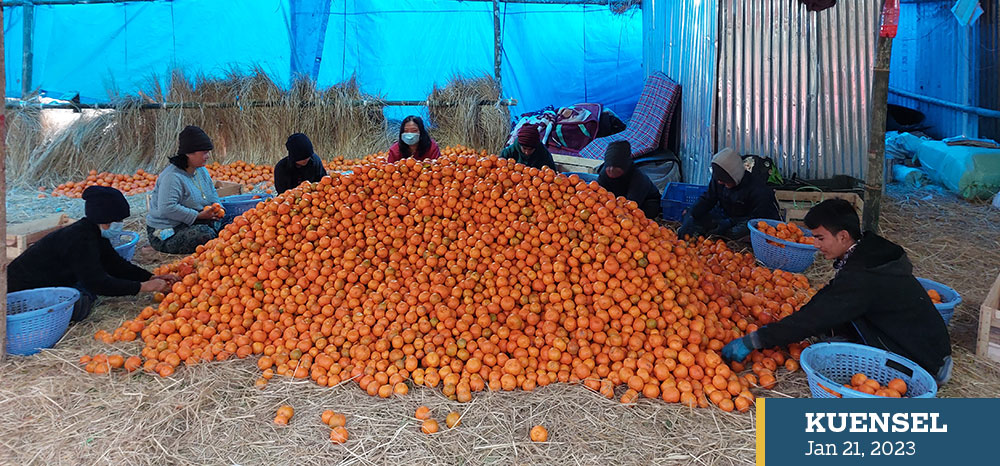Choki Wangmo | Tsirang
Kinley Tshering and his friends—30 in all—have just done their lunch. They are sitting by the fire, outside a tent.
Vehicles arrive with huge loads of mandarin orange. There is no time to waste.
Kinley, a student of Sherubtse College, is the captain of the group. He instructs his friends to start the work. Most of them are students on vacation. Some are as young as 14.
Pronto, everyone takes his position. Division of labour is critically important at the depots. Women and children are involved in grading and packing. Big boys do the loading and unloading.
Every winter, for over a month, young people from different dzongkhags come to Gelephu and Tsirang to make money. They sleep in the temporary sheds. Contractors provide the meals.
The works start by 10 in the morning and can go as late as two in the next morning.
“It is cold and we do not get enough sleep. But we make good money,” said Kinley Tshering.
A Class-VII student of Nyizergang in Tsirang said: “I work of pocket money. “Mil is the biggest, Keel is medium sized; tablet sizes do not qualify for export. This is what I have learnt.”
The group earns Nu 600 to Nu 900 individually in a day.
Kinley Tshering sets aside half of his earning as household expenditure and keeps the other half as his expenses as his pocket money.
The 30 families from Jabana have made Changchay depot in Tsirang their home temporarily.
Tsheten Wangchuk, his wife, and twin boys are renting a room at the depot, paying Nu 1,500 a month. Some have made homes out of CGI sheets. The family has been working at the depot for the last year too.
Kinga Wangmo is one of the ten women in a group. They are involved in packing the fruit.
“We can make money but cannot give time to our children. Works get challenging at night,” she said.
Payment depends on how fast one can work. A packer is paid Nu 25 per box and loaders Nu 10 extra.
“Fast workers can earn Nu 80,000 in 20 days and the slowest about Nu 20,000,” she said.
Meto Lham worked in the Gelephu depot last year. “I can earn and it helps me send my two children to school,” she said, adding that due to cold winters back at home, they can’t work in the farm.


